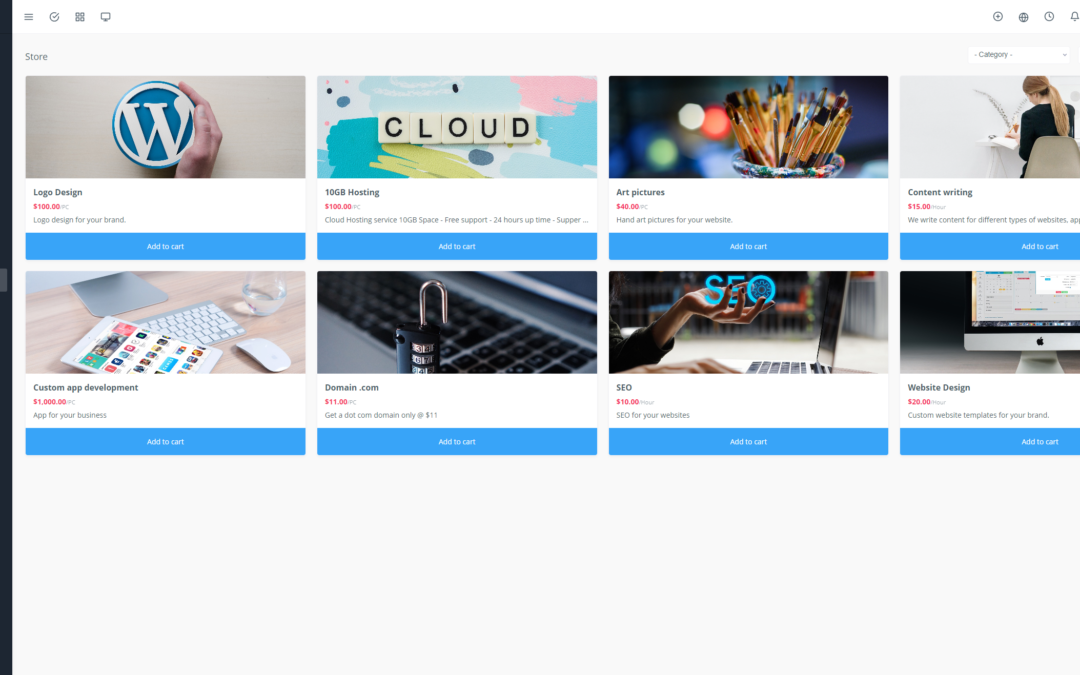The real estate market is constantly evolving, and to succeed in this field, it’s crucial to be equipped with powerful tools. A real estate CRM, or Customer Relationship Management, becomes an essential ally for efficiently managing your contacts, transactions, and properties.
But with a multitude of options available, choosing the right CRM can be challenging. Here are the key criteria to consider when finding the perfect fit for your business needs:
1. Specific Real Estate Needs 🏘️
Contact Management: A real estate CRM should allow you to centralize and organize your contacts, create segments, and track their interactions.
Transaction Tracking: Managing the different stages of a transaction, from the initial contact to the final closing, is essential. A good CRM will enable you to monitor progress, manage documents, and communicate effectively with all stakeholders.
Property Management: The CRM should help you manage your property listings, store key information (photos, descriptions, floor plans, etc.), and distribute them on listing platforms.
2. Integration with Existing Tools 💻
Your real estate CRM should easily integrate with your other tools, such as listing platforms (Zillow, Realtor.com, etc.), accounting software, and marketing tools. This interconnectivity allows you to synchronize your data and avoid duplicates.
3. Automated Marketing Features 🚀
To reach your audience and generate leads, marketing automation is a major asset. A powerful CRM will allow you to:
Send Personalized Emails and SMS: Create targeted marketing campaigns based on contact segments.
Manage Social Media: Schedule posts and interact with your followers.
Track Campaign Performance: Analyze results and optimize your strategies.
4. Document and Contract Management 📑
Secure Storage: A real estate CRM should offer a secure storage system for your important documents (contracts, certificates, etc.).
Electronic Signatures: Facilitate contract signing and save time with integrated electronic signature solutions.
5. Lead and Opportunity Tracking 📈
Sales Pipeline Management: Visualize the different stages of your transactions and track the progress of your leads.
Performance Analysis: Identify the most successful lead sources and optimize your strategies.
6. Data Analysis and Reporting 📊
Key Performance Indicators (KPIs): Track key metrics such as conversion rates, average transaction time, etc.
Dashboards: Visualize your company’s performance and identify areas for improvement.
7. Ease of Use and Learning 🧑💻
Intuitive Interface: Choose a CRM that is easy to use and understand, even for beginners.
Training and Support Available: Ensure the CRM offers training and effective customer support.
8. Data Security and Confidentiality 🔐
Compliance with Regulations: Choose a CRM that complies with applicable regulations (GDPR, etc.).
Data Encryption: Your data should be protected by robust encryption systems.
9. Pricing and Subscription 💰
Monthly Cost: Choose a subscription that fits your budget and the needs of your business.
Payment Options: Make sure the payment options offered are flexible and convenient.
10. Mobile Integration 📱
Mobile Applications: Access your CRM information in real-time, even when you’re on the go.
11. Customer Support and Technical Assistance 🆘
Responsiveness: Choose a CRM with responsive and available customer support.
12. Flexibility and Scalability 📈
Adaptability to Changing Business Needs: Choose a CRM that is flexible and able to evolve with your needs.
13. Collaboration Features 🤝
Document Sharing: Facilitate collaboration between teams and agents.
Team Communication: Create a collaborative and efficient work environment.
14. Team and Commission Management 💰
Task Assignment: Assign tasks to your team members.
Performance Tracking: Evaluate the performance of your agents and manage commissions.
15. Task Automation Features 🤖
Process Optimization: Automate repetitive tasks to save time.
16. Social Media Integration 🌐
Property Sharing: Share your listings on social media.
Service Promotion: Promote your services and expertise.
17. Compliance with Laws and Regulations ⚖️
GDPR, Data Protection Laws: Choose a CRM that complies with applicable laws.
18. Integration with Real Estate Listing Platforms 📡
Data Synchronization: Synchronize your listings with listing platforms.
19. Reputation Management Features ⭐️
Review Tracking: Monitor reviews about your business.
Comment Response: Manage your company’s reputation and respond to customer feedback.
20. Integration with Prospecting Tools 🔍
Potential Prospect Identification:* Use prospecting tools to identify potential leads.
Conclusion:
Choosing a real estate CRM is an important decision that can significantly impact your success. By considering all these criteria, you can select the CRM that will perfectly suit your business needs and help you achieve your goals. Don’t hesitate to compare different CRMs available on the market and request demos before making a decision. 😉

